
So, I’ve been a long-time user of ESET Nod32 for all my personal machines, corporate systems, servers, and client PC’s. I’ve heard many positive reviews for the newly-released antivirus and antimalware platform from Microsoft called Microsoft Security Essentials. My results were a little surprising and a bit disappointing… Read on for my full review.
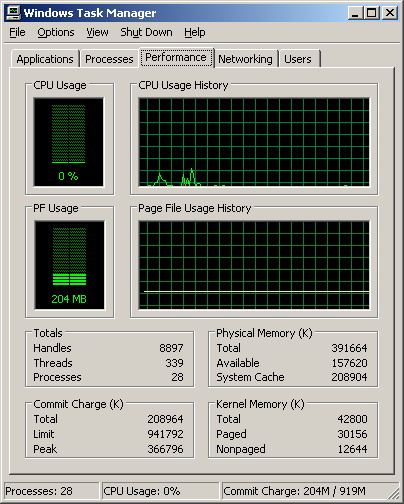
I started with a clean installation of XP SP3 on an Intel Core2 Duo system with 512 MB of RAM (shared with the on-board video system). All essential updates installed. Here’s a capture of the system in this state.
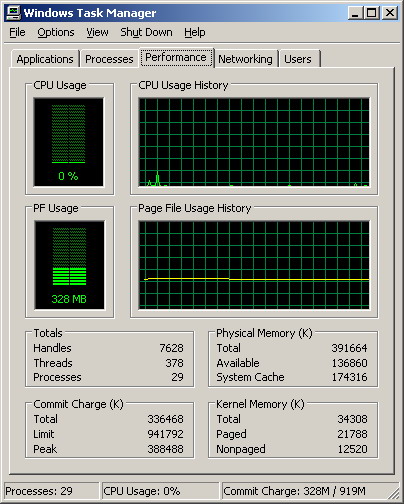
This next capture is after installing MSE, running a full system scan, rebooting, and waiting for all CPU activity to calm down for about 30 min. Note that the additional footprint for MSE is over 120MB. Considering the sparse amount of free memory in this system, this is a considerable hit to performance.
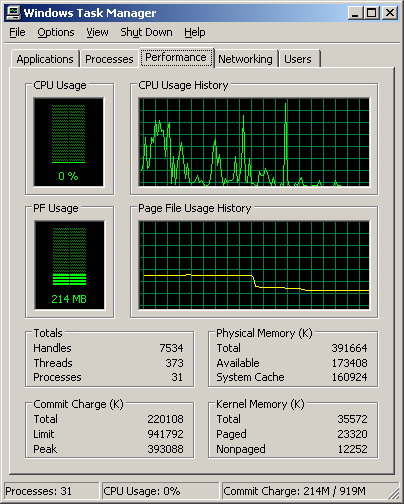
Here I closed the MSE processes and watched the change in system performance both before and after. This confirms that the 120 MB memory hit was a direct result of running MSE in the background.
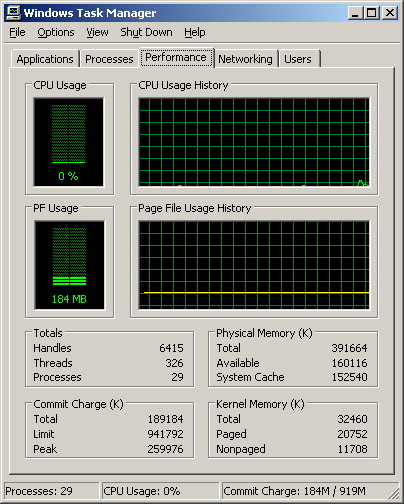
This is after uninstaling MSE and rebooting. Strangely, I seemed to have managed to free up another 20 MB in memory somehow but I have no idea how…
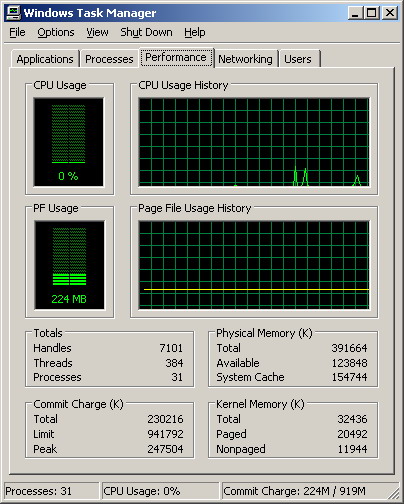
Lastly, this is after installing NOD32 and performing the same full scan and letting all CPU activity calm down. It barely registers as a memory hit at all. I’m 40 MB above the system after uninstalling MSE -but I’m still about 20 MB from the original system configuration when I started this test.
CONCLUSION: First of all, I know that this is a VERY limited test. I have seen these results on 3 additional systems but I’m well aware of the fact that this can be a purely anecdotal test result. With that said, being a free Antivirus / Antimalware platform, if you have plenty of RAM and probably running either Vista or Windows7, I see no reason why not dedicate some of the system resources to MSE. But, if you’re still running older XP systems with limited amounts of RAM, I’d stick with the reasonably-priced, low-overhead of NOD32.
I’d love to hear any thoughts you have at this point…